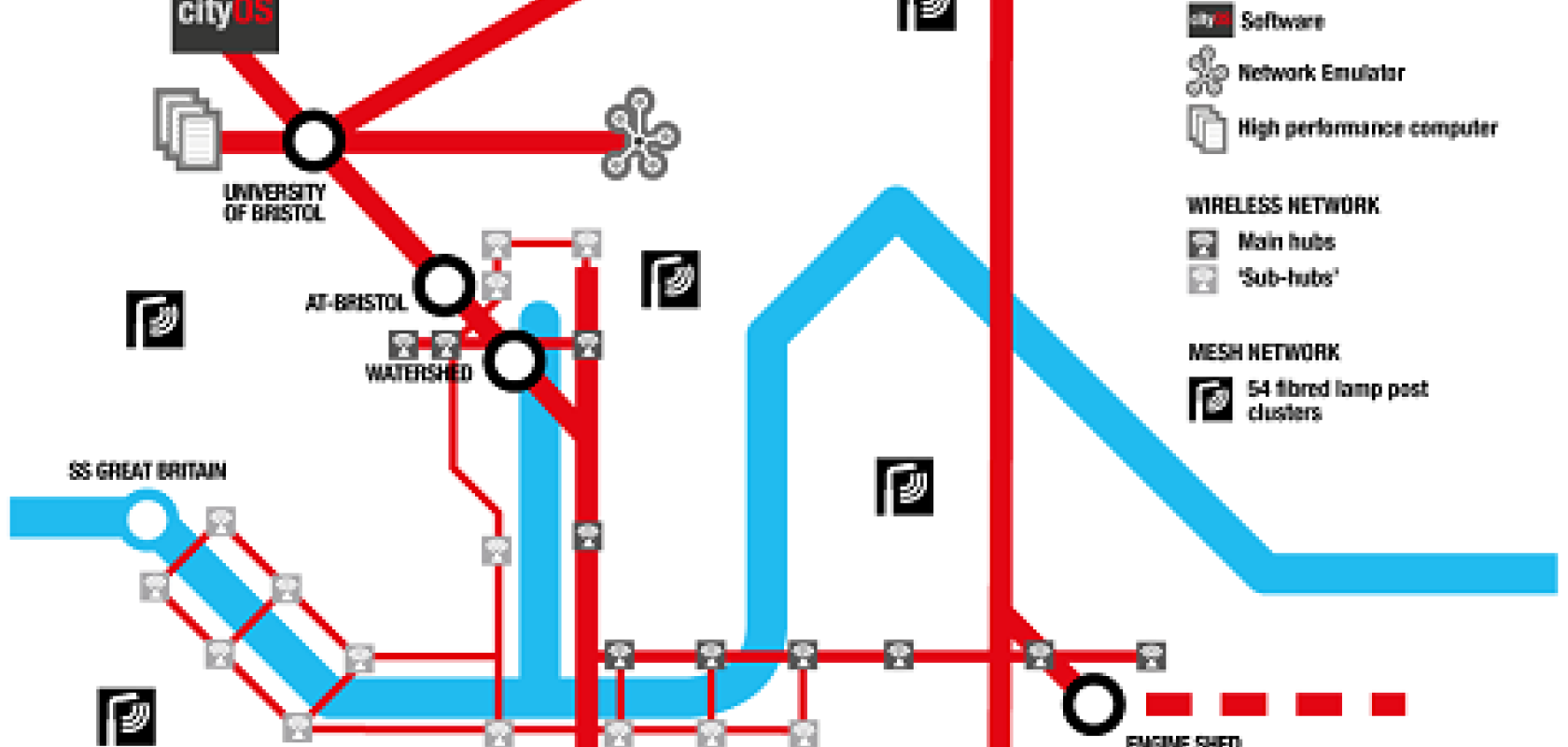Optical switch developer Polatis has landed a key role in a new software-defined optical network that will provide the foundation for a smart city initiative in Bristol, UK.
‘Bristol is Open’ is a city-wide network that will enable greater interaction between people and places. Combining sensors and other devices with agile communications networks and high-performance computing resources, the smart city will be able to respond intelligently in real time to everyday events including traffic congestion, waste management, energy supply and more.
Paul Wilson, managing director of Bristol Is Open said: ‘We are building in Bristol the world's first open programmable city, a ground-breaking project aimed at providing a platform for the development of applications that will promote innovation and deliver a better quality of life.”
Distributed sensors will supply the network with information about many aspects of city life including energy, air quality and traffic flows; the city’s supercomputing and cloud resources will host and analyse the real-time information flows, providing open, accessible data for the development of a wide range of applications and services to enhance the urban environment.
The foundation of the Bristol is Open initiative is an ultra-fast, flexible and intelligent fibre network. The project will make use of part of the council-owned BNet fibre-optic network, a 144-fibre ring network linking Bristol University to access points around the city. The University’s BlueCrystal High Performance Computer facility, a supercomputer capable of 200 trillion calculations per second, will crunch the data.
Polatis optical switches play an important part in bringing the fibre layer under software control. Its switches were selected because they support a software defined network (SDN) environment using embedded OpenFlow agents on each optical switch to allow dynamic control of resources.
Polatis’ 192x192 fibre cross-connect switches will be deployed at nodes along the ‘Brunel Mile’ in Bristol, enabling the dark fibre network to be reconfigured on demand. Polatis says its patented DirectLight technology enables dark fibre switching because the functionality is transparent to wavelength, protocol and speed.
Another important element of the project is the unique City Operating System (CityOS) developed by Professor Dimitra Simeonidou and colleagues in Bristol University’s High Performance Networks research group. The CityOS will host machine-to-machine communication, which will allow the development of applications capable of analysing and programming the city-generated data.
Several science projects are already benefitting from the joint venture, including TOUCAN (Towards Ultimate Convergence of All Networks) and SPHERE (a Sensor Platform for HEalthcare in a Residential Environment), projects that aim to improve communications, and health and wellbeing, respectively.
TOUCAN is a challenging £12 million project that is co-funded by the UK Engineering and Physical Sciences Research Council and industry. The five-year project, which started in August 2014, aims to define a technology-agnostic optical network architecture based on SDN principles.
Image credit: Bristol is Open

